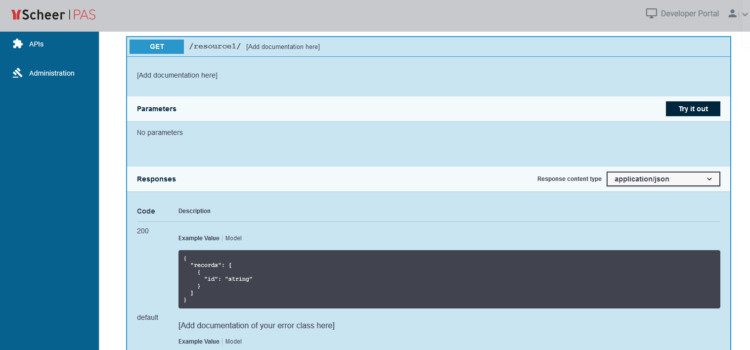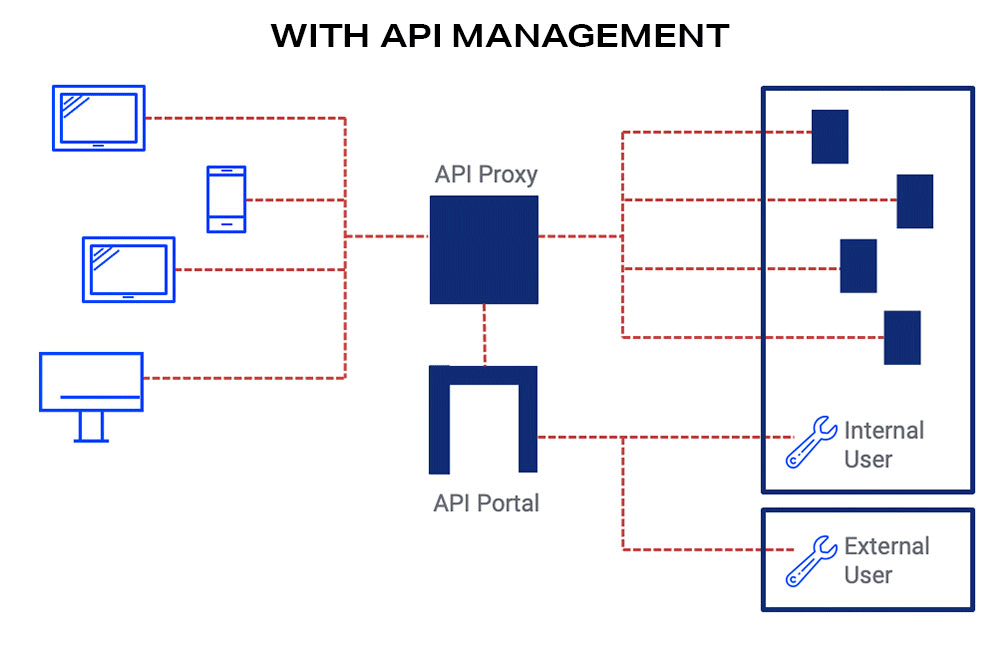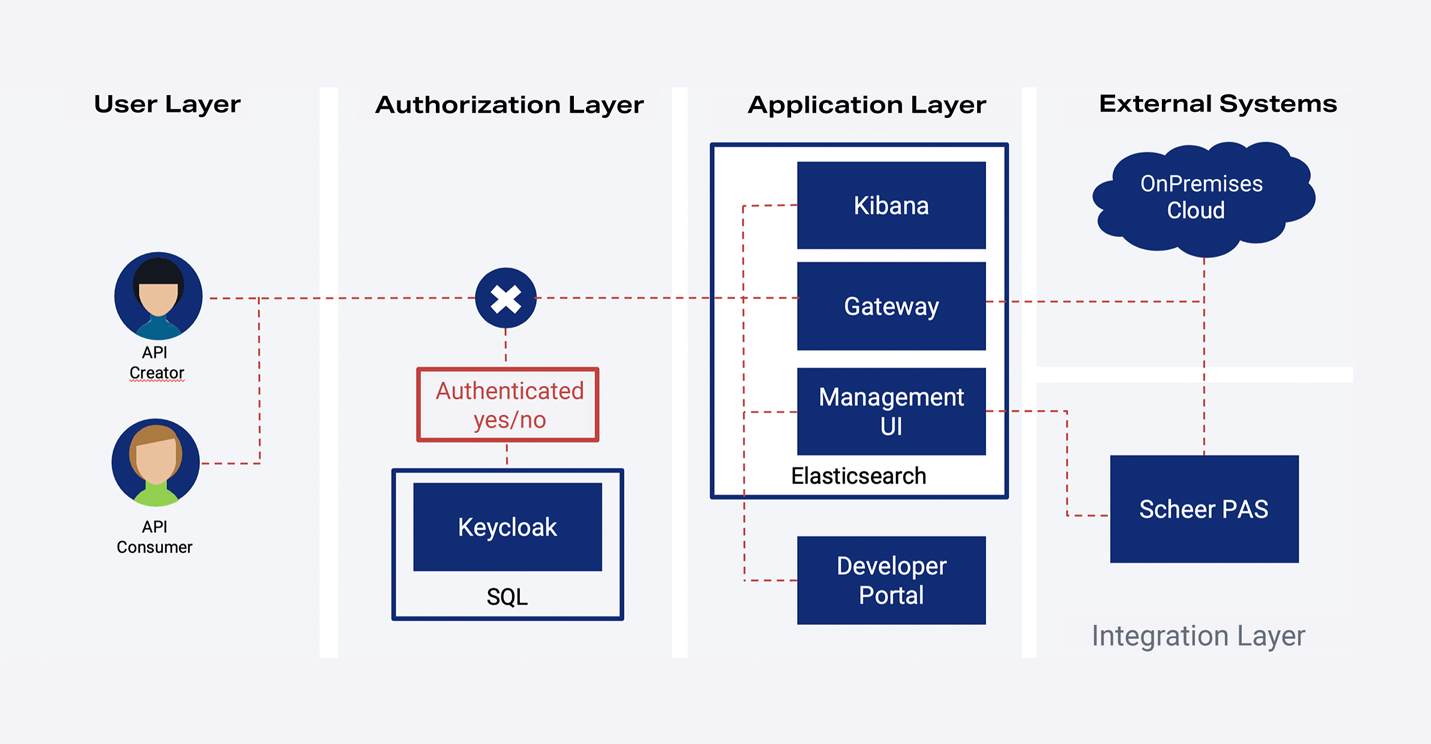
Exploit the potential of your data in a secure, scalable environment. APIs make processes more efficient! And they optimize the use of existing data, wherever the data is stored. An API management solution helps companies maintain control of all interfaces and to optimize their use.
Why is API Management effective?
Many IT systems may also mean many APIs. To maintain control of their use, accesses and publication, an API management system is important. It means security for your company. Accesses and use of the APIs are protected, different versions of an API can be saved and organized centrally, public and private interfaces can be made available via a URL, and accesses can be controlled centrally. This way, your APIs are optimally secured and your company is protected against criminal attacks. You decide who has access to your data!

With an API management system, you can catalog, version and document all your deployed APIs, which are then published via gateways. A gateway refers to a central location where all queries to a system are collected. In addition to the basic security functions such as authentication, authorization, digital encryption, and digital signature, when calling up services, an API gateway uses the ‘reverse invoke’ security technique. This security mechanism reduces gaps to an absolute minimum.
Management of the interfaces is carried out through the assignment of APIs, plans, contracts and clients to groups that are called organizations. Users in an organization are given specific roles. For example, a user with the API viewer role can see all the APIs of an organization but cannot edit them.
An interactive console supports developers with definition and documentation of the interface. With analysis and reporting functions, you can see how developers deploy APIs and how apps are used. Trends can be followed to ensure that the API meets the requirements of the developers and the applications.
The provision of a programming interface takes place over multiple steps. First, the API must be selected or newly created. After this, one or more plans, consisting of a group of policies, are defined. Then, a user of the API (client) and a contract are created. The contract links a specific plan with an API. For each customer, you can create any number of contracts.
The use of individual APIs can be offered flexibly to developers, partners, and also to end customers. Scheer PAS API Management can be quickly adapted and it enables direct import of xUML service endpoints.

In order to manage a large number of interfaces, APIs, plans and customers must be allocated to groups, called organizations. The users within an organization receive authorizations in the form of roles. For example, a user with the “API viewer” role can see all the APIs of an organization but cannot edit them.
